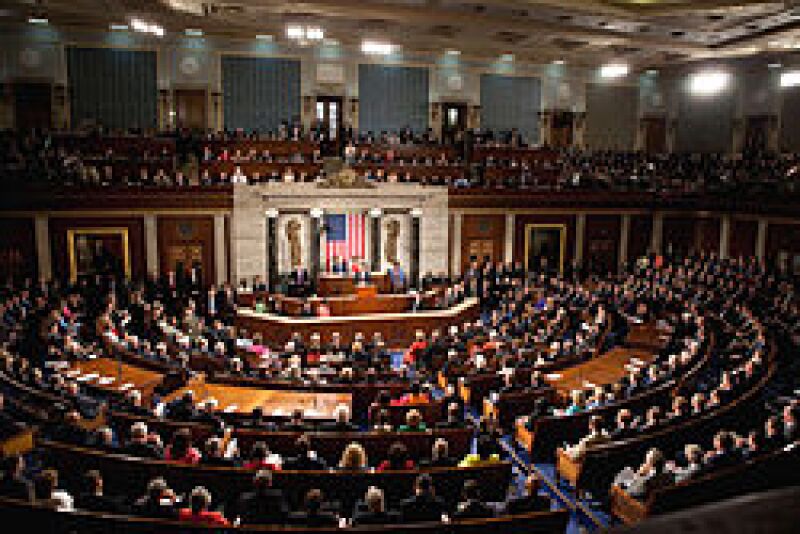Last week one US tax adviser said that US corporations act responsibly in reducing their foreign taxes, claiming they should be praised for such actions. However, the same statement is also another clear argument for comprehensive corporate tax reform.
If the US reformed its tax code, there would be fewer reasons for corporate taxpayers to move their income overseas and therefore less need for such companies to then try and reduce their foreign taxes. In fact, effective reform would in itself mean US corporations reduce their foreign taxes, with the IRS the beneficiary.

Multinational companies require a presence in many different countries. But companies are discouraged from bringing foreign profits back to the US because of the tax it would incur on repatriation. This is not in line with international norms and is another reason for reform.
The effects of uncertainty in the existing tax code are already harming the US economy. A recent survey conducted by Alvarez & Marsal revealed that US CFOs desire certainty above lower rates, indicating the extent to which inaction on tax reform is hindering growth. And a survey released this month by the Business Roundtable showed that American CEOs envision slower growth for 2012 than previously expected. One of the main causes of such scepticism is uncertainty in relation to US tax policy and the tax code.
What attracts US companies to foreign jurisdictions is not only the lower rates available, but also the certainty they can obtain in their tax affairs. For instance, Ireland – which attracts foreign investment in large part because of its low corporate tax rate – has repeatedly stood by its commitment to keeping the tax rate at 12.5%, thereby providing certainty for the taxpayers operating there. This is in stark contrast to the US, where taxpayers are never sure that political posturing and fighting will not obstruct certainty.

If the US feels it is also losing out because of provisions in other countries which offer favourable rates for certain types of income – for instance intellectual property income being subjected to a lower tax rate of tax in the UK and Netherlands because of patent box regimes – then why not include such provisions in a reformed US tax code? That way hi-tech companies such as Google, Facebook and Twitter would not be incentivised to relocate parts of their operations abroad.
As the adviser also pointed out: “[T]he US tax rules governing the dollar-for-dollar foreign tax credit require a US company to exhaust all effective remedies to reduce its taxes under foreign law, or else the credit will be denied.” So, if companies are legally required to “exhaustively” pursue measures to reduce their foreign taxes, then surely what this shows is not companies acting responsibly, but responsible legislation for the foreign tax credit.
What the US needs now is more responsible and sensible legislation to replace the other features of the tax code.
In the present economic conditions, the corporate tax rate should be designed to spur growth and job creation. Since Germany lowered its rate from 38.9% to just a shade over 30% in 2008, it has had the fastest economic growth rate in Europe. The US rate does not adequately help to achieve job creation and growth, and should therefore be lowered.
The Tax Policy Center has argued for a corporate tax rate of 26%, the Wyden-Coats tax simplification plan proposed 24%, Treasury Secretary Timothy Geithner has referred to a rate “somewhere in the mid-20s”, Mitt Romney wants 25%, as does House Budget Committee chairman Paul Ryan, former President Clinton has urged 24% and so on.
This list shows that a consensus is there. A rate somewhere around the mid-20s, in line with the OECD average, is clearly favoured. Action is now required. A report from the World Bank last year ranked the US 62nd on a list of countries ordered by ease of paying taxes. By those standards, the US was tied with Uganda in terms of tax code complexity.
A simpler tax code, with a lower corporate tax rate, is what the US needs. If it doesn’t come soon, don’t be surprised when the next report from the Business Roundtable shows even slower growth in the US.
FURTHER READING:
Boeing, FedEx and Nike demand lower US corporate tax rate
US tax certainty more important than lower rates for CFOs, says A&M report
COMMENT: Why the US budget will leave American businesses playing catch-up
Grand old policies: Republican candidates on corporate tax
IRS and Treasury tighten rules on US firms moving to low-tax countries
Eaton’s move to Ireland highlights need for US tax reform, more relocations expected soon










